Global and historic context of the Iran-Israel War.
Global and historic context of the Iran-Israel War.
By Sergio Rodríguez Gelfenstein
Once again, circumstances require a broader view of international conflicts. It seems reductionist to me to limit the recent events in West Asia to the idea of a bilateral conflict between Israel and Iran. What is happening has implications that go far beyond a simple confrontation between two countries, no matter how brutal the war may be. In reality, what is happening is an expression of a new chapter of conflict produced by the antagonistic contradictions of an international system marked by one pole of power in decline and another emerging as an alternative.
The current international system emerged from the pain of the Second World War and the deception of some of the victors about the causes and consequences that generated it. The triad of global control consisting of the financial instruments (IMF and World Bank) born in Bretton Woods in 1944, the political ones, emanating from the creation of the UN and its agencies in 1945 and the military structured around NATO in 1949, have been the tools that the West has used during the last 80 years to maintain its domination and hegemony over the planet.
However, already in the 1960s, this system was undermined by the United States’ external deficit, which imported more than it exported, forcing it to finance the difference through the creation of inorganic money. This “forced” Washington to suspend the convertibility of the dollar into gold (which emerged from Bretton Woods) and establish the dollar as the international currency. Paradoxically, it was at this moment that a crisis of the prevailing capitalist system began to take shape, one that even today, 65 years later, has not been overcome. With this, the foundations were laid for building a new global political and economic order.
It didn’t immediately have the opportunity to fully develop because the alternative that should have emerged from the Soviet Union and socialism faced its own economic problems, beyond the apparent political stability it displayed. But the approval of China’s reform and opening-up policy in 1978 began to change everything. It was the moment of Beijing’s rise to become a major world power that could counterbalance the United States, the West, and capitalism.
In 1970, more than 90% of world trade was conducted in dollars; today, that figure falls below 47%. The most incredible thing is that the United States itself is the driving force behind this change, sanctioning approximately 3 billion citizens (approximately 40% of the world’s population) and preventing them from using the dollar. Although the West emerged triumphant from the Cold War and the Soviet Union disappeared, the West failed to “manage” its victory. The institutions they created (primarily the UN) are being torpedoed, violated, and rejected by them; the United States has withdrawn from many of them. All of this is leading to a process of political and social self-destruction that is leading to the destruction of the United States and the West as the center of global power.
Another of its pillars: representative liberal democracy, is fading away, affected by the cunning blows dealt by its own creators when they realize that it no longer serves them well as a mechanism for intervention and the exercise of irrefutable social and political supremacy over local, national, and global societies and institutions.
Within this framework, significant events have occurred in recent years that are a transparent expression of this spiral of crisis: the inability of the “competent” agencies to manage the COVID-19 pandemic; the inability to prevent the genocide against Russian-speaking people in the east of what was formerly Ukraine, a country that allowed a notable resurgence of Nazi fascism and racial superiority as a governing doctrine, forcing Russia to act in its defense; the planet’s inability to prevent another genocide, this one even more brutal and overwhelming, against the Palestinian people… and now this: the endorsement of the United States and the West to free Israel’s hands in order to destroy Iran and its Islamic revolution.
In this context, it’s worth providing some analytical elements to understand what’s happening and what might happen. From these, everyone should draw their own conclusions. Let’s see:
- The United States’ biggest mistake at this juncture was allowing Israel to attack Iran at a time when it was negotiating with Washington. This provoked an immediate response from the Arab and Muslim world, manifested in their unification around Iran. Twenty-two countries signed a declaration of support for Tehran within the framework of the Organization of Islamic Cooperation (OIC), including some of the most powerful and largest, such as Saudi Arabia, Pakistan, and Türkiye. Others, once enemies of Iran, such as Saudi Arabia itself, now support it, rejecting Zionist aggression. All see Iran as the victim of an external attack.
- For most of the international community, Iran has gone from being part of the “axis of evil” to being a country subjected to violence and attack.
- These events gave Iran the go-ahead to put into practice what it has been building for 40 years, all of which is in accordance with international law and the UN Charter.
- Despite having received the first blow, a cunning, surprising, and painful one, Iran quickly recovered, counterattacked, and began to shatter the paradigm of Israeli military supremacy and the inviolability of its territory.
- As the days have passed, having failed to achieve its initial objectives: destroying Iran’s atomic potential, its military capability (especially its missile capabilities), and eliminating its leadership, Israel has begun to implore the United States’ direct involvement in the conflict. This demonstrates its need to save itself from the unprecedented and unthinkable destruction of its military, industrial, and technological platforms by Iran, which were supposed to be untouchable and secure against any action by an external enemy. Thus, its weakness and the failure of the much-vaunted notion of the infallibility of its “iron shield” have become evident.
- However, this should not prevent us from considering that Israel is seeking support from a weak, easily blackmailed, and emotionally unstable US leader who has led some of the internal actors in the US political system to operate independently. Washington is not a monolithic actor, nor is it homogeneous, nor is it united around a single leadership, as has been demonstrated in the case of Ukraine.
- In the specific case we are analyzing, the US intelligence agencies and Armed Forces are not in agreement with participating in direct military action against Iran. They are aware of the strategic weakness of the military component, coupled with the internal contradictions that threaten civil war and/or the disintegration of the country and its institutions. Evidence of this is the clashes in California and other states, even though the participants in these events have different objectives, not always linked to a critique of the system and the safeguarding of its “democracy.”
- Even though Trump raises his voice, threatens Iran (while calling for negotiations), and contradicts himself daily, he shouldn’t forget that at the beginning of the conflict, Tehran was at the negotiating table. That’s an irrefutable truth.
- The Pentagon has 53,906 officers and soldiers deployed across 21 military, naval, and air bases in 10 West Asian countries (Turkey, Kuwait, Syria, Iraq, Qatar, Saudi Arabia, Oman, Bahrain, the United Arab Emirates, and Jordan), many of them accompanied by their families, in addition to a large contingent of civilian workers providing services to the military bases. The most distant is Jordan, located 1,575 km away, and the closest are Kuwait, Bahrain, Qatar, and the United Arab Emirates, located on the western coast of the Persian Gulf, just 200 km from Iranian missile bases. One of these bases houses the U.S. Navy’s Fifth Fleet, located in Bahrain, where there are 7,000 U.S. military personnel. An Iranian attack—depending on the type of missile used—would reach these bases in a time ranging from 39 to 116 seconds. In the face of this, Pearl Harbor would be remembered only as “a minor incident.”
- Even if the United States were to drop its most powerful bomb, the GBU-57, on Iran—a 13.6-ton bunker-busting explosive device that can only be dropped from a B-2 stealth bomber to destroy underground nuclear fuel enrichment plants—it would only damage the Natanz nuclear plant, leaving the most important one, Fordow, intact. These bombs have a penetration power of 60-70 meters, and Fordow is known to be built well over 100 meters below the ground, although this exact figure is unknown. It is worth noting that Israel does not possess the bomb or the aircraft capable of delivering it.
- It is clear that Iran has the potential to inflict real damage on the United States. For the sake of analysis, it should be added that Iran has other unknown cards up its sleeve, which could cause irreparable damage to Washington and its allies, given that they lack the technological capacity to counter the action of these weapons.
- Iran now has grounds to withdraw from the International Atomic Energy Agency (IAEA) and remove itself from the nuclear non-proliferation protocols. To remain in the organization, it can demand that Israel join under the same conditions.
- If negotiations were to resume, the United States has proposed maintaining the limits on the range of ballistic missiles, which Iran has so far respected. Now, given the new situation, the range could be unlimited.
- Iran is starting a war, but the United States has been waging war against Ukraine for three years, and Israel has been waging two wars against Hezbollah, Syria, Palestine, and Yemen, all of which have been extremely draining. The security concept established by David Ben-Gurion, Israel’s first Prime Minister, was based on the idea that the eternity of the Zionist state depended on sustaining short wars outside its territory and against weak enemies that would ensure victory; otherwise, the existence of the Israeli state could not be guaranteed. Currently, these three premises are unsustainable.
- Israel lacks a doctrine and popular support like Iran.
- Iran has an area of 1.65 million km² and a population of 92.5 million. Israel only covers 22,145 km² (occupied territories), of which 5,960 are in Gaza and the West Bank. It has a population of 9.76 million, including 2.1 million Arabs (21% of the total). It is worth considering that a significant portion of the territory occupied by Israel is desert and unpopulated. Demographically, 50% of Iran’s population is under 30 years old, a figure that doubled between 1979 and 2000. Among these young people are 5 million students, tens of thousands of them scientists trained by the Islamic revolution.
- Iran is the world’s fourth-largest oil producer and holds the third-largest reserves globally. It is also the world’s second-largest gas producer and holds the second-largest reserves on the planet.
- Iran’s important geographic location gives it control over the Straits of Hormuz and Bab al-Mandeb. If Tehran were to decide to close the straits (which is not very difficult), the world would be prevented from acquiring 35% of the oil traded, bringing the price of a barrel of oil down to around $300 from the current $74-$78. More than 100 countries around the world would be unable to purchase it.
- Iranian (formerly Persian) civilization has existed for 7,000 years. The United States has existed for only 250 years. Zionism was born 130 years ago, and only in the last 72 years has it established itself as a state, thanks to an illegal UN decision.
- Iran has a missile reserve that it has been building for 30 years. Some of these weapons have only recently become known, but most have never been demonstrated or used. Just last night and early this morning, the Sejjil, Fattah 2, and Khorramshajr missiles were used for the first time in history. Each missile can carry up to 2 tons of explosives and fly at Mach 15 (15 times the speed of sound, or 18,510 km/h, or 308 km/minute). Neither the United States nor Israel have the technology to intercept this type of missile, not only because of its speed, but also because of its unique homing mechanism, which allows it to change trajectory and avoid being interrupted.
- It’s worth adding that the Pentagon itself announced two days ago that Iran is the first country in the world to develop plasma weapons, an energy technology that uses plasma (the fourth state of matter) for weapons construction. Plasma can be used to neutralize or annihilate targets through projectiles, thermal explosions, or disruptive fields, according to a report by U.S. Defense Department spokesman Sean Parnell, as reported in an article published on the Indo-Canadian digital news site EurAsian Times.
- Iran has demonstrated courage in its leadership and the determination of its armed forces, both during its response to the assassination of General Soleimani, when it directly attacked US military bases, and recently in its retaliation to Israeli aggression, creating a balancing act that the enemy will have to consider and respect if it is not to commit suicide.
- If, despite all this, the United States decides to engage in a direct war against Iran (with or without NATO support), it would be engaging in a war of attrition that could last several decades. Added to this is the various conflict scenarios it is currently waging at various latitudes and longitudes across the globe.
- In Arab countries with US military bases and interests, there are millions of Shia Muslims who have accepted Iran’s leadership and its guidelines. They are trained, organized, and armed, waiting to receive an order to join a regional conflict should the United States escalate the war to that level.
- On the other hand, it remains to be seen how far the United States is willing to risk its interests and whether it has the capacity to deal with the situation that would arise in the event of a global economic recession, driven and promoted by Washington. Although US hegemony has always acted in terms of political irrationality, and imperialism cannot be trusted “even a little,” as Commander Ernesto Che Guevara famously said, I’m not so sure that Washington wants to declare war on Iran, among other reasons because there is no consensus among either the US elite or public opinion for this.
- Washington must consider that if its war in Vietnam lasted ten years and was the worst military defeat in the United States’ history, and if Afghanistan, in 20 years, transformed it into a giant with feet of clay that had to retreat in defeat and humiliation, a war with Iran could mean the definitive end of its imperial power. In the meantime, the Russians could reach Berlin, the Chinese seize Taiwan, and the Africans could definitively destroy Europe’s neocolonial power on that continent. If that happens, the post-World War II era and the system that emerged from it will be over forever.







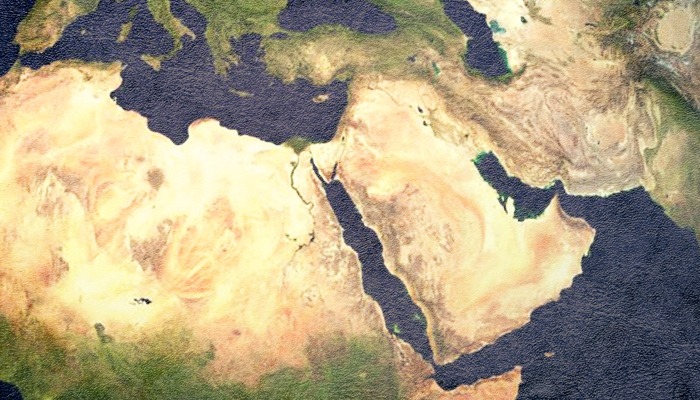
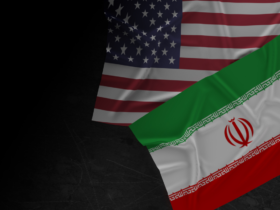
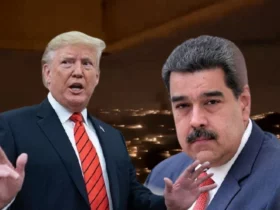
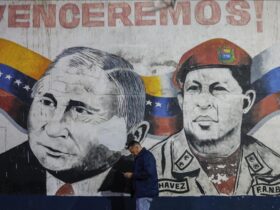
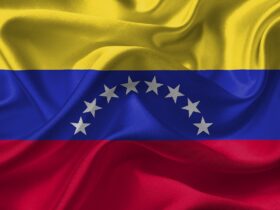

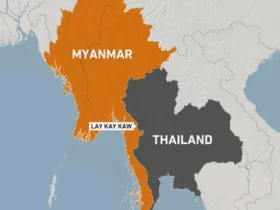

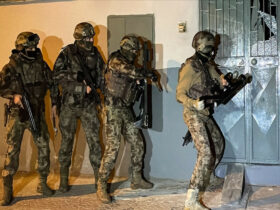

Leave a Reply